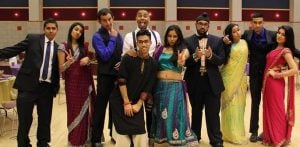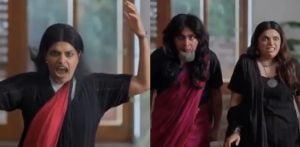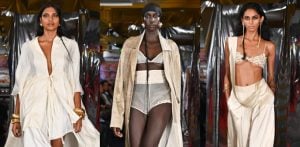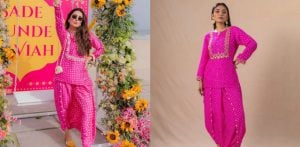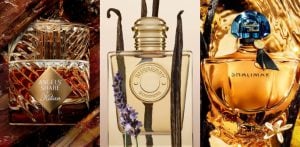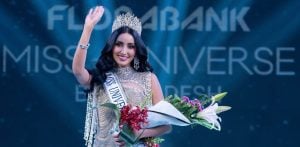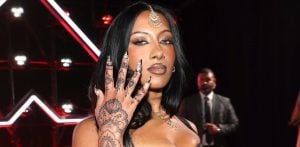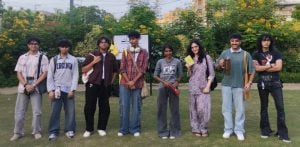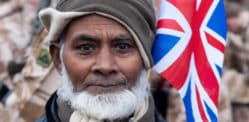“My sister and I are still struggling to find a good match."
In Pakistan, ‘Gora Complex’ is a term that captures a troubling reality: the deeply ingrained belief that lighter skin means greater beauty, success, and status.
Rooted in colonial history and reinforced by social and cultural systems, this mindset quietly fuels racism within communities, shaping how people judge one another, and themselves.
But this isn’t just about vanity or skin-deep preferences.
It’s about how colonial legacies and colour-based prejudice still dictate the lives and choices of millions in Pakistan.
We delve into ‘Gora Complex’ and racism in Pakistan, and how it often hides behind the mirror, taking the form of an unspoken but powerful obsession with fairness.
Where It All Began

Pakistan’s Gora Complex issue goes back to South Asia’s colonial history.
When the British ruled the Indian subcontinent for nearly two centuries, they not only controlled the land, but they also instilled a system that ranked people based on skin colour.
The lighter-skinned you were, the more “civilised” and “superior” you were thought to be.
This wasn’t just a political strategy; it seeped into everyday life, from how people saw each other to how they valued their own identity.
Even after the countries in the subcontinent gained independence in the mid-20th century, these colonial ideas didn’t just vanish.
Instead, they stuck around in subtle but powerful ways, shaping how people view beauty, status, and even themselves.
The obsession with fair skin didn’t just disappear – it was reinforced by media, society, and even family expectations.
That’s where the Gora Complex comes in. And for many, it’s not just about appearance, it’s about how society treats you.
Why Fair Skin Is Still the Ideal Beauty Standard

In Pakistan today, fair skin is often viewed as the golden standard of beauty.
From magazines to movies, the message is clear: fair is beautiful.
Whether it’s a job interview, a wedding proposal, or even friendships, lighter skin can sometimes feel like a ticket to better opportunities.
On the other hand, darker-skinned individuals can face prejudice and discrimination, often without even realising it.
In Pakistan, matrimonial ads are full of descriptions like “fair complexion”. This is also the case in India and Bangladesh.
Even the entertainment industry is dominated by fair-skinned stars, while darker-skinned actors often struggle to land leading roles.
And it’s not just about appearance, there is a deep-seated belief that fair skin equals intelligence, charm, and high social status.
Here’s a closer look at how the Gora Complex manifests in Pakistan.
Beauty Industry

If you’ve ever flipped through a magazine or watched TV in Pakistan, you’ll notice something pretty clear: a heavy focus on fair skin.
Beauty and skincare brands are notorious for pushing products that promise to lighten your complexion. These companies often claim their products will help you “shine brighter.”
The marketing campaigns are crafted to make dark skin feel like something to be fixed or altered.
Even though awareness around the dangers of these products has grown, they remain deeply popular, perpetuating harmful beauty standards.
It’s a multi-billion-dollar industry that feeds off insecurities and the deeply embedded belief that fair skin opens doors.
Products like ‘Fair & Lovely’ have been staples for decades, with adverts promoting lighter skin as a key to success.
After years of backlash, the name was changed to Glow & Lovely. But did anything really change?
There continues to be a Gora Complex, and fair-skinned celebrities like Sajal Aly and Mawra Hocane are cast in their adverts.
Although “fair” is gone from the label, the message is still the same: glowing means being light-skinned.
That subtle messaging is just as harmful as it tells people that only one type of beauty is worth celebrating.
Mainstream Media

Turn on the TV in Pakistan, and what do you see? Fair-skinned news anchors, actors, and celebrities dominate screens.
The same is true in films and TV dramas, where fair-skinned actors often play lead roles.
Meanwhile, darker-skinned actors are often relegated to supporting or stereotypical roles like maid, driver, cook, etc.
Pakistani media has a significant influence on how beauty is perceived, and fair skin is often linked to higher social status and professionalism.
Lighter skin is constantly shown as the standard, not just for beauty, but for professionalism and power. And that kind of consistent imagery sticks.
Dua*, who works as an actress in Pakistan, told DESIblitz:
“I have been told that my acting skills are amazing.
“I’ve worked in several dramas and short films. No one questions my performance.
“However, I have failed to land a good role even after all this time.”
“The only roles we dark-skinned actors get are domestic worker, a rishta auntie, a nosy neighbour from a poor background.
“It sometimes feels that they are associating dark skin colour with people of lowly social standing.”
There are others who feel the same way. There are rarely any darker-skinned people featured in prominent roles in Pakistani dramas and films.
Fashion Industry

From runways to photoshoots, the fashion industry has long reflected the Gora Complex with its narrow view of what beauty is.
Lighter-skinned models are the ones who often get the spotlight, while darker-skinned models are underrepresented.
Pakistan’s fashion scene is no different.
Designers and brands tend to choose fair-skinned models to represent their collections, overlooking the array of skin tones that exist.
This emphasis on fair skin leads to a lack of diversity in the fashion industry.
And it’s not just about looking beautiful in clothes, it’s about creating a sense of aspiration.
Unfortunately, the fashion world continues to experience the Gora Complex.
Makeup Brands

One of the most frustrating experiences for many Pakistanis is the struggle to find makeup products, particularly foundations, that match their skin tone.
In Pakistan, not enough makeup brands create a wide enough variety of shades for people with darker complexions.
Many women face the disappointment of walking into stores and finding only a handful of shades that may or may not match their skin.
The lack of diverse makeup options is another sign of the deeply ingrained preference for fair skin.
It sends the message that darker skin is somehow “lesser” or not as worthy of being represented in beauty products.
Noor, a beauty creator from Karachi, revealed:
“As a dark skinned creator, I am always troubled when brands ask me my foundation shade for PRs.”
“They don’t even have a shade that matches my skin tone, so naturally they go with lighter-skinned creators when it comes to such products.”
Jaweria, a creator from Lahore, added: “I don’t know why people are so obsessed with buying makeup 10 shades lighter.
“If they stopped doing that, we would have to stop relying on imported products.”
Rishta Culture

In Pakistan, one of the most deeply ingrained aspects of the Gora Complex plays out in the “rishta” (marriage) culture.
Parents often place immense pressure on their children to find a suitable partner.
One of the first things many parents look for is skin colour.
“Fair” skin is often considered a key asset in the marriage market, sometimes more important than education, personality, or compatibility.
It’s common to hear phrases like, “She is a good match, but she’s too dark,” or, “His family only accepts fair-skinned girls”.
It’s not just about beauty; it’s about how skin tone can determine the perceived worth of a person in the eyes of society.
Hajra, a teacher from Karachi, revealed: “I am not even that dark and when this family came for my rishta, the mother of the suitor looked at my feet and hands closely.
“She most likely suspected that I was using cosmetics to conceal my true colour.”
This preference for light skin can lead to unnecessary stress and a sense of inferiority for those with darker skin.
Nida, a resident of Rawalpindi, revealed: “My sister and I are still struggling to find a good match.
“Whenever rishta people are coming to our house, our elder brother says, ‘I can order this cream for you’. Your skin colour will become fair, and you will find a good match.
“When we refuse, he argues a lot because he is unaware of how harmful whitening products are.”
Pakistani women are constantly reminded that their skin tone may be a barrier to finding love or acceptance.
Parents and Upbringing

Growing up in Pakistan, many children are told from an early age to avoid the sun, because they don’t want to “get dark”.
Parents often warn their kids to stay indoors or avoid drinking tea, since it’s believed it can darken the skin.
For a child, these comments can be confusing and damaging, sending the message that there’s something wrong with having darker skin.
Usba, a resident of Rawalpindi, revealed: “I don’t know if they said it to stop us from drinking tea or if they actually believed it would make us darker.
“They made it seem like ‘getting darker’ was the worst possible outcome.”
Narmeen, an artist from Karachi, shared her story: “My sister, who is more dark skinned than I am, faced the worst of it.
“Whenever we went shopping with our parents, our mother used to point out how a dress didn’t look good on her because of her skin tone.
“Because of that, now she has no preference of her own. She is always asking others how something looks on her because she fears nothing suits her due to her brown skin.”
This mentality is often passed down through generations, as parents, having internalised the Gora Complex themselves, unknowingly perpetuate these biases.
Skin Colour Bullying

Gora Complex is also witnessed in schools throughout Pakistan, as darker-skinned children face bullying.
Insults like “kala” or “kali” are often used, bringing these racist notions from home, reinforcing the idea that dark skin is something to be ashamed of.
Laiba*, a college student from Jhelum, shared her experience:
“Girls used to mock my skin tone and make jokes like ‘she disappears after 7 pm’.
“All my school life, I kept trying creams that would somehow miraculously make me fair.”
Khuzaima, a chef, revealed that she suffered racist comments from a teacher:
“I was there to give an entry test at a school in Islamabad.
“When we were being allotted our seats, she (teacher) told a girl to sit behind the kali wali (black one), as she pointed at me.”
These early experiences with colourism can have lasting effects, shaping a child’s self-esteem and body image for years to come.
Dark-skinned children often grow up hearing these insults, and it takes a toll on how they view themselves.
Derogatory Remarks

In Pakistan, people of mixed heritage or those with roots in India often face derogatory remarks related to their skin tone.
Insults like “churi” and “mussali” target skin colour and carry historical connotations tied to colonial and caste-based systems.
They reflect a racial hierarchy where lighter skin is often linked to higher social standing, and darker skin is associated with lower status.
These terms have been used for so long that they’ve become normalised in many conversations, but their impact is deeply hurtful.
Literature

In South Asian countries like Pakistan, reading is a popular pastime, especially among stay-at-home mothers and housewives.
However, some books illustrate the Gora Complex as heroines are described as fair-skinned and classically beautiful.
Words like ‘doodhiya rang’ (milky complexion) and ‘malai numa’ (cream-like) are used.
These descriptions send a clear message – only women with lighter skin are considered beautiful or desirable in these stories.
This repeated messaging feeds into the Gora Complex.
The stories may be fictional, but the impact is real. Readers absorb these ideas without even realising it.
Mothers internalise them and then raise their children with the same mindset.
Meme Culture

In today’s digital age, memes have become a huge part of our culture, often in ways that reflect and reinforce societal biases.
Dark-skinned women are frequently the subject of cruel jokes.
One common meme trope involves making fun of women whose hands or feet don’t match the shade of their face.
This often implies that the mismatch is somehow “ugly”.
Pakistani TikToker Areeka Haq was a victim when a photo of her at a market went viral.
She faced trolling because she didn’t appear as fair-skinned as she does in her videos, with many fixated on her feet.
Another influencer, Roma Arif, became popular for her striking looks.
But the admiration quickly backfired. After she posted an unfiltered video, people noticed her real skin tone was much darker than what they had seen before.
The backlash was brutal, all because her natural appearance didn’t match the filtered, fairer version people had gotten used to.
These are just a couple of examples, but they show how deep the Gora Complex issue runs in Pakistan.
The Gora Complex is more than just a preference for lighter skin, it’s a symptom of deeper issues tied to colonialism, internalised racism, and societal inequality.
Until Pakistan and other South Asian countries confront the harmful ideals it has normalised for generations, the cycle will continue, shaping everything from self-esteem to media representation.
Dismantling this mindset requires more than just awareness; it demands action.
True progress begins when we stop equating skin tone with worth and start embracing the full spectrum of what it means to be beautiful, successful, and human.











